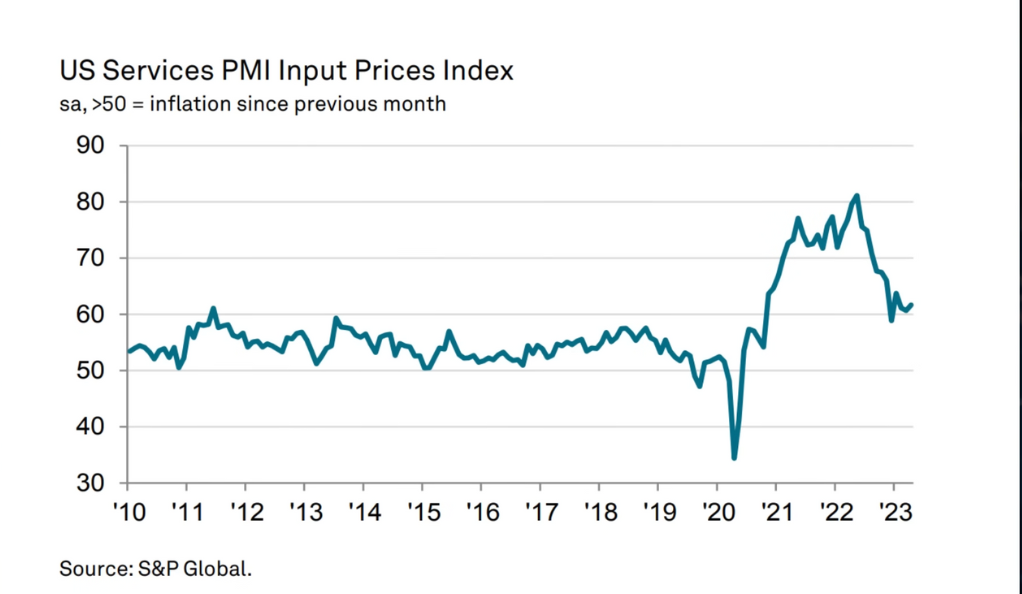The British economy is grappling with a formidable challenge in the form of inflation, a topic that has garnered widespread attention and raised concerns. At the heart of this issue is the Bank of England (BoE), which has been embroiled in controversy due to allegations of mishandling the situation. Criticism has been directed towards the BoE for its perceived delay in addressing the problem and for attributing the rising inflation to external factors rather than accepting responsibility.
To understand the current situation, it is important to recognize the unique challenges faced by the UK. The country has been navigating the aftermath of Brexit, which has had far-reaching implications on its economic landscape. The uncertainty surrounding trade agreements, border controls, and regulatory frameworks has added complexity to the economic environment. Additionally, supply chain disruptions caused by the COVID-19 pandemic and global factors like rising commodity prices have further exacerbated inflationary pressures in the UK.
Central banks play a crucial role in managing inflation and maintaining economic stability. The actions and decisions of central banks have ripple effects on the overall economy. In the case of the BoE, its handling of inflation has been closely scrutinized, as it impacts the livelihoods of individuals, the competitiveness of businesses, and the overall trajectory of the economy. The interconnectedness of central banks around the world also means that their policies and decisions can have spill-over effects on other countries, making effective and timely action crucial in addressing inflationary challenges.

The BoE’s Inflation Problem
The Bank of England (BoE) has faced significant criticism regarding its handling of the inflation problem in the UK. Critics argue that the central bank has been slow to respond to rising inflation, allowing it to escalate to concerning levels. Instead of accepting accountability for the situation, the BoE has been accused of shifting blame onto external factors such as supply chain disruptions, Russia, and the aftermath of Brexit. This defensive approach has been met with skepticism, as many believe that the BoE should take greater responsibility for the current economic challenges.
The delay in addressing the inflation problem has raised concerns among economists and policymakers. Inflation erodes the purchasing power of consumers, reduces business profitability, and can have long-term effects on the overall economy. Critics argue that the BoE’s reluctance to take swift action, such as adjusting interest rates or implementing tighter monetary policies, has contributed to the persistence of inflationary pressures. This has led to a loss of confidence in the BoE’s ability to effectively manage and control inflation, exacerbating concerns about the stability of the British economy.
Furthermore, the BoE’s tendency to attribute the rising inflation solely to external factors has been met with skepticism. While factors like global supply chain disruptions and the aftermath of Brexit certainly play a role, critics argue that the BoE should acknowledge its own role in managing the situation. They contend that the central bank should have anticipated and prepared for these challenges, taking proactive measures to mitigate the impact on inflation. By deflecting blame onto external factors, the BoE has not only undermined public trust but also missed an opportunity to demonstrate leadership and accountability in addressing the inflation problem.
The Role of AI in Central Banking
Hugh Pill of the Bank of England (BoE) recently sparked a discussion on the potential role of artificial intelligence (AI) in central banking. Pill’s suggestion implies an admission of the limitations faced by human decision-makers in effectively managing complex economic situations. The idea that AI could surpass human competence in economic decision-making is both intriguing and raises concerns about the future of central banking and the integration of technology.
The use of AI in central banking could offer benefits such as improved data analysis, enhanced economic forecasting, and more informed policy decisions. AI systems have the ability to process vast amounts of data, identify patterns, and generate insights that humans may overlook. By leveraging machine learning algorithms, central banks could potentially enhance their ability to predict and respond to economic trends, including inflation. However, it is important to approach the integration of AI in central banking with caution. While AI can offer valuable support, human judgment and expertise should still play a critical role in decision-making. Safeguards, transparency, and accountability mechanisms must be in place to ensure that AI systems are used responsibly and that decisions align with broader social, political, and ethical considerations.
The Unique Challenges of the UK’s Mortgage System
The UK’s mortgage system presents unique challenges in managing inflation. Unlike the US, where fixed-rate mortgages are common, the UK has a different system. If the BoE raises rates aggressively in an attempt to curb inflation, mortgages will rise significantly. This could potentially lead to economic devastation and push the economy into a depression. This delicate balance between managing inflation and maintaining economic stability is a tightrope that the BoE must walk.

The Interconnectedness of Central Banks
The Bank of England (BoE) operates within a broader network of interconnected central banks, emphasizing the global nature of economic management. The actions and decisions taken by central banks, including the BoE, have far-reaching effects beyond their national borders. In the context of inflation, the BoE’s approach is influenced not only by domestic factors but also by the policies and actions of other major central banks, such as the Federal Reserve in the United States. This interconnectivity highlights the need for coordination and cooperation among central banks to address inflationary challenges effectively.
The coordination among central banks is crucial for maintaining economic stability and minimizing spillover effects. Central banks regularly engage in dialogue, information sharing, and joint policy discussions to align their strategies and mitigate conflicts. By working together, central banks can ensure that their actions are complementary and supportive, preventing potential disruptions in the global economy. The interconnectedness of central banks underscores the interdependencies of national economies and the shared responsibility of central banks in maintaining stable inflation rates and fostering sustainable economic growth worldwide.

The BoE’s Inflation Forecasts and Revisions
The BoE’s inflation forecasts and their frequent revisions have been a point of contention. The bank has repeatedly revised its inflation target, pushing it further into the future. This constant shifting of goalposts has led to criticism and raised questions about the BoE’s grasp of the economic situation.

The Impact of Rising Cost of Living and Strikes
The increasing cost of living in the UK has had significant repercussions, as evidenced by the growing number of strikes taking place. Public sector workers, in particular, are planning to demand higher wages in response to the inflation problem. These strikes serve as a stark reminder of the tangible impact that economic issues have on individuals and their livelihoods. The rising cost of living, coupled with stagnant or slow wage growth, has created financial strains for many workers, leading to dissatisfaction and calls for improved compensation.
The strikes also shed light on the importance of effective economic management. It is crucial for policymakers and central banks to address inflationary pressures in a timely and balanced manner. When the cost of living rises faster than wages, it places an increasing burden on individuals and households, undermining their quality of life. Effective economic management entails implementing policies that not only control inflation but also ensure that wage growth keeps pace with or exceeds the rising cost of living. This balance is vital for social stability, productivity, and overall economic well-being.

The Role of Andrew Bailey and the BoE
Andrew Bailey, the head of the BoE, has been criticized for blaming the inflation problem on external factors like supply chains and the war. Critics argue that this approach fails to acknowledge the BoE’s role in creating the problem. This criticism highlights the need for transparency and accountability in economic management.
Conclusion
The British public is currently facing the harsh reality of inflation. While the BoE assures them that the problem is being handled, many are skeptical. The bank is accused of manipulating data and gaslighting the public, creating an illusion that the inflationproblem has been resolved when, in reality, it persists. This situation underscores the need for transparency, accountability, and effective management in central banking.
The BoE’s handling of the inflation problem, the role of AI in central banking, the unique challenges of the UK’s mortgage system, the interconnectedness of central banks, the BoE’s inflation forecasts and revisions, the impact of the rising cost of living and strikes, and the role of Andrew Bailey and the BoE are all critical aspects of this complex issue.
As we navigate these economic challenges, it’s essential to remember that behind the numbers and forecasts are real people feeling the impact of these decisions. The strikes and the rising cost of living are not just economic indicators; they are a reflection of the struggles faced by everyday people.
The future of the UK’s economy hinges on how effectively the BoE and other central banks manage these challenges. Will they rise to the occasion, or will the public continue to endure more pain under the illusion of a resolved inflation problem? Only time will tell.
In the meantime, it’s crucial for us to stay informed, ask questions, and hold our economic institutions accountable. After all, the economy is not just about numbers and data; it’s about people and their livelihoods. And that’s something we should never lose sight of.
Ainu Token aims to offer impartial and trustworthy information on cryptocurrency, finance, trading, and shares. However, we don't provide financial advice and recommend users to conduct their own studies and thorough checks.



Comments (No)